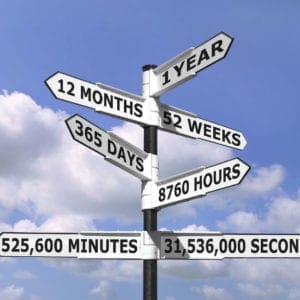 New hotels are breaking ground, renovating or reflagging in nearly every single market. Industry consolidation continues to fuel online behemoths like Booking.com and Expedia with no signs of stopping. A sustained appetite for sharing economy wunderkind Airbnb and others like it illustrates a growing number of tenable threats poised to pilfer hotel market share. When you stop and look around, it seems as though hotels are facing unbridled online competition.
New hotels are breaking ground, renovating or reflagging in nearly every single market. Industry consolidation continues to fuel online behemoths like Booking.com and Expedia with no signs of stopping. A sustained appetite for sharing economy wunderkind Airbnb and others like it illustrates a growing number of tenable threats poised to pilfer hotel market share. When you stop and look around, it seems as though hotels are facing unbridled online competition.
But one key to revenue success in the midst of emerging hotel competition is an intelligent strategyÑand itÕs the golden ticket for hotels looking to rise above mounting competition. From adopting revolutionary forecasting practices to exploring new pricing formulas, itÕs time for todayÕs progressive hotels to question their existing revenue strategy and tackle their complex booking environments.
ThereÕs a new way to forecastÑand itÕs all about your strategy
Forecasting is by no means a new concept to the hospitality industry. Hotels have been using various methods of forecasting for decades. However, as more and more useful data emerges, traditional forecasting approaches have an enormous pressure to evolve with the industry. To fully implement rising market intelligence data in their revenue strategy, hotels are turning to the practice of ‘futurecasting’.
Futurecasting is a strategy used in many other industries to help organizations plan strategically for the future. It helps hotels evaluate underlying industry dynamics, predictive analyses and a variety of traditional revenue elements to better analyze how and why certain outcomes occurred. It melds traditional revenue management data with demand intelligence to give hotels a better perception of the driving factors behind their guestsÕ booking behavior. Many hotels have access to technologies that allow them to track basic shopper activity on their website; however, they have previously been fairly limited to high-level booking data and lost business data for only their dot.com website when forecasting demand. TodayÕs travel intent data uses search and booking data from third-party booking sites and OTAs to help quantify the demand a hotel can expect for future dates. It gives hotels human-focused insights, such as ages and hobbies, to infuse into marketing agendas for better ad placements, guest experience packages and personalized offers.
Revenue technology providing this level of comprehensive data insight offers hotels a distinct competitive advantage for pricing their rooms, personalizing their marketing efforts and aligning the overall consumer experience across all of their booking channels.
Hotels have more than just one option for strategic pricing
TodayÕs high-tech climate means that guests can compare hotels with a couple clicks of a mouseÑor, in many cases, a mildly dexterous thumb. Hotels have to understand their competitorsÕ pricing strategies and how it affects their own strategies. Even more, hotels need flexibility of choice to pick an ideal pricing strategy that delivers the highest profit potential.
When you search online, every single hotel represents their own set of unique guests, custom room types and memorable locations. But when these types of custom selling points need to be folded into revenue technology and any subsequent distribution channels, hotels are too often constrained by the limitations of their technology. The aforementioned selling points are all critical in the development of a unique pricing strategy, and need to be accommodated with the right kind of rates.
After all, in an industry widely recognized for its endless appeal of guest choices, hotels should also be offered a similar reciprocation of analytical pricing options from their industry and technology partners.
Revenue strategy: ItÕs not just rates and forecasts
ThereÕs another competitive revenue opportunity gaining steam with hoteliers, and thatÕs how to infuse their hotel website with elements of their overall revenue strategy. A hotelÕs dot.com website is one of the most important assets for attracting guests and increasing profits. With some dedication and worthwhile investment, there are a couple of areas that will elevate a website up to par with todayÕs guest demands.
Hotel website visitors, without a doubt, need to have a positive user experience. Website architecture should provide straightforward navigation, a seamless booking experience and a variety of payment options at checkout. It also needs to be responsive and adapt its content to accommodate users searching via their mobile phones and tablets.Ê
To drive better revenue and encourage more direct bookings, hoteliers can also explore providing website-only offers not available on other booking engines. They can also incorporate their social media content, like guest ratings and reviews, so their guests can engage directly with the brand. Accurate prices for different room classesÑ something thatÕs driven largely by revenue technology and best practicesÑis another website must for hotels that want to maximize overall revenue.
Hotels constantly leverage the best of the best to deliver their guests exceptional and high-touch experiencesÑand doing so requires they have an intelligent revenue strategy on hand. By incorporating the practice of strategic futurecasting, as well as looking past implementing cookie-cutter pricing approaches, hotels can successfully and competitively differentiate themselves within their markets. Further capitalizing on any existing website opportunities will also lend itself toward reaching overall hotel profit goals. In the end, achieving success in todayÕs competitive climate means jettisoning any cumbersome revenue strategies, and pushing forward with strategic forecasting, insightful industry data and razor-sharp website capabilities.
By Mike Chuma
 Mike Chuma joined IDeaS Revenue Solutions in 2016 as Vice President of Product Strategy, bringing more than 15 years of progressive experience in driving growth and strategy in enterprise SaaS technology, eCommerce platforms, brand management and marketing for companies ranging from start-ups to Fortune 500 organizations. Today he is responsible for leading product strategy, global marketing and knowledge management teams on a global basis for IDeaS.
Mike Chuma joined IDeaS Revenue Solutions in 2016 as Vice President of Product Strategy, bringing more than 15 years of progressive experience in driving growth and strategy in enterprise SaaS technology, eCommerce platforms, brand management and marketing for companies ranging from start-ups to Fortune 500 organizations. Today he is responsible for leading product strategy, global marketing and knowledge management teams on a global basis for IDeaS.



















